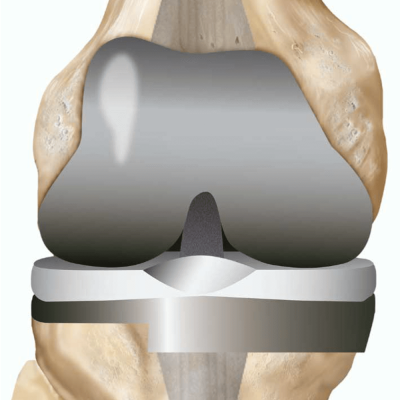Revision Total Knee Replacement Surgery
Get the advanced revision total Knee Replacement Surgery in Sri Ganganagar by Dr. (Major) Pulkit Thatai. Dr. Pulkit Thatai is most experienced Knee replacement Surgeon in Sri Ganganagar. Call now +91-
Revision Total Knee Replacement Surgery in Sri Ganganagar
Total knee replacement stands as a pinnacle achievement in medical procedures, offering a vast majority of individuals relief from chronic knee pain and facilitating more active and fulfilling lives. Despite its success, knee replacements can encounter complications over time, leading to symptoms such as pain, swelling, stiffness, and instability, hindering everyday activities.
In such cases, considering revision total knee replacement surgery in Sri Ganganagar emerges as a highly beneficial option. Whether individuals are grappling with conditions like osteoarthritis, rheumatoid arthritis, or recovering from injuries, this surgery promises to alleviate pain and provide stability, ensuring a restored quality of life.
If your knee replacement fails, your doctor may recommend a second surgery – revision total knee replacement. In this procedure, your doctor removes some or all of the original prosthesis and replaces them with new ones.

What is Revision Total Knee Replacement
1. Implant Loosening and Wear
To ensure the success of a total knee replacement, it’s crucial that the implant remains securely attached to the bone. Initially, during surgery, the implant was either cemented onto the bone or press-fitted to allow bone integration. However, over time, the implant can loosen from the underlying bone, resulting in knee pain. The exact cause of this loosening isn’t always clear, but factors such as high-impact activities, excessive body weight, and wear of the plastic spacer between the metal components can contribute to it. Additionally, younger patients undergoing knee replacement may outlast the expected lifespan of their prosthetic knee, increasing the long-term risk of loosening or wear necessitating revision surgery. In some instances, microscopic particles accumulating around the joint can trigger an immune response, leading to a condition called osteolysis, where the bone surrounding the implant deteriorates, causing instability. Fortunately, advancements in material science have reduced the occurrence of osteolysis compared to previous decades.2. Infection
Infection is a potential complication of any surgical procedure, including total knee replacement, and can occur during or after the surgery, even years later. An infected artificial joint can lead to stiffness, pain, and implant loosening. Treatment for infection varies depending on factors such as the type and duration of infection, its severity, and patient preferences. It can involve either debridement and retaining the implant or staged surgery, where the implant is entirely removed and replaced after clearing the infection. Your doctor will determine the best approach based on your specific situation, with implant removal offering a higher chance of curing the infection but involving a longer recovery period
3. Instability
Damage or imbalance in the ligaments surrounding the knee can cause instability, leading to symptoms like frequent swelling and a sensation of the knee giving way. Revision surgery may be necessary if non-surgical interventions like bracing and physical therapy fail to address knee instability.4. Stiffness
Occasionally, a total knee replacement may not provide the necessary range of motion due to excessive scar tissue formation around the knee joint. In such cases, manipulation under anesthesia may be attempted to break up the scar tissue and improve motion. However, if stiffness persists due to extensive scar tissue or component issues, revision surgery may be required.5. Fractures
Periprosthetic fractures, which are fractures around the components of a total knee replacement, often result from falls and typically require revision surgery. Factors such as the quality of remaining bone, the type and location of the fracture, and implant stability are considered in determining the extent of modification needed. In cases of bone degradation or osteoporosis, the damaged portion of the bone may need to be replaced with a larger revision component.

Dr. (Major) Pulkit Thatai
If you find yourself without any other options for consultation, Dr. Pulkit Thatai in Sri Ganganagar is the ideal choice for you. Renowned as one of the top knee replacement surgeons, he is your go-to person for any knee-related concerns.
Whether you seek guidance on resolving knee issues or have queries about knee replacement surgery, Dr. Pulkit Thatai will address all your concerns comprehensively.
With a track record of over 10000 successful surgeries throughout his career, Dr. Pulkit Thatai is adept at resolving your knee problems effectively. Moreover,Dr. Pulkit Thatai Clinic is well-equipped with all the essential facilities, ensuring you receive the best care possible.”
Process - Revision Total Knee Replacement Surgery
Revision total knee replacement is more complicated and time consuming than primary total knee replacement. In complicated cases, surgery can take several hours. To begin, your doctor will follow the line of the incision made during your primary total knee replacement. The incision may be longer than the original, however, to allow removal of older components. Once the incision is made, the doctor will move the kneecap and tendon to the side to reveal your knee joint. Your doctor will examine the soft tissues of your knee to make sure they are free of infection. He or she will assess all metal and/or plastic parts of the prosthesis to determine which parts are worn out or loosened or out of position. If necessary, your doctor will remove the original implant very carefully to preserve as much bone as possible. If cement was used in the primary total knee replacement, this is also removed. Removing this cement from the bone is a time-consuming process that adds to the complexity and length of revision surgery. After removing the original implant, your doctor will prepare the bone surface for the revision implant. In some cases, there may be significant bone loss around the knee. If this happens, metal enhancements and platform blocks can be added to the main components to make up for the bone shortfall. Rarely, bone graft material may be used to help rebuild the knee. The graft can come from your own bone (autograft) or from a donor (allograft). Finally, your doctor will insert special revascularization implants, repair any surrounding soft tissue that is damaged, and carefully examine the range of motion of the joint. A drain may be placed in your knee to collect any fluid or blood left over after surgery. After surgery, you will be taken to the recovery room, where you will stay for several hours while your recovery from anesthesia will be monitored. After you wake up, you will be taken to your hospital room.
Complications in Revision Total Knee Replacement Surgery
Like any surgical procedure, there are risks associated with revision total knee replacement. Because the procedure is longer and more complicated than a primary total knee replacement, it carries a higher risk of complications. Before your surgery, your doctor will discuss each risk with you and take specific measures to help avoid potential complications.
Potential risks and complications of revision surgery include:- Poor wound healing
- Reduced range of motion or stiffness in the knee
- Infection in the wound or new prosthesis
- Bleeding
- Blood clots in the legs that can travel to the lungs (pulmonary embolism)
- Bone fracture during surgery Damage to nerves or blood vessels
- Medical problems such as heart attack, lung complications, or stroke
